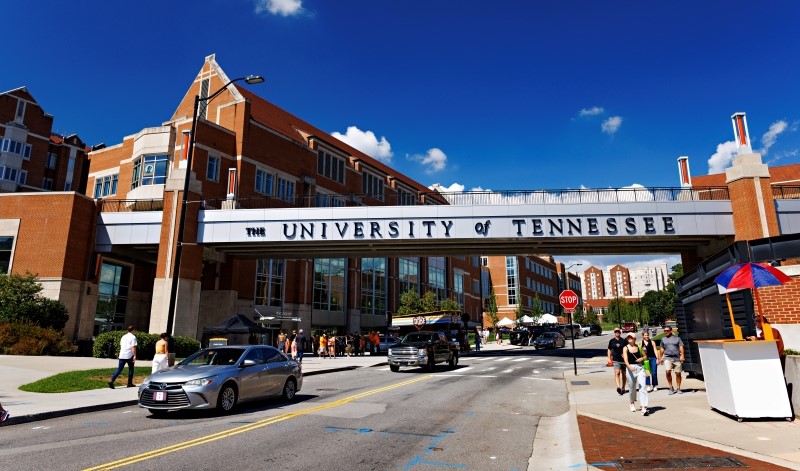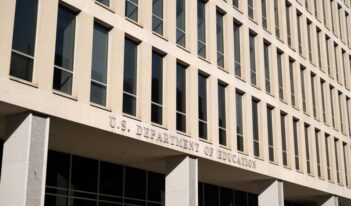
The Biden Administration’s Title IX regulation protecting LGTBQ+ students faces legal and political hurdles.
The future of the Biden Administration’s recent Title IX rule is not looking bright.
While legal battles over the regulation progress to the federal courts of appeals, the recent news of a second term for President-elect Donald Trump suggests that the political battle over the regulation is just beginning.
Although the new Title IX rule took effect on August 1, 2024, federal judges blocked the U.S. Department of Education from enforcing the regulation in 26 states until courts weighed in on the rule’s protections against discrimination based on LGBTQ+ identity. The rule, however, took effect in most educational institutions in the remaining states.
Lawsuits challenging the rule are led by Republican state attorneys general and are backed by conservative and Christian advocacy groups. They argue that the Education Department overstepped its authority by extending Title IX—enacted in 1972 to prohibit sex discrimination in educational institutions receiving federal funding—to prohibit discrimination based on sexual orientation and gender identity.
Litigation continues to progress through U.S. Courts of Appeals for the Fifth, Sixth, Eighth, Tenth, and Eleventh Circuits.
Recent Sixth Circuit oral arguments in Tennessee v. Cardona offer a window into the debate.
Earlier this summer, the U.S. District Court for the Eastern District of Kentucky granted a preliminary injunction blocking the Education Department’s entire regulation in Tennessee, Kentucky, Ohio, Indiana, Virginia, and West Virginia. The court characterized the rule as “an attempt by the executive branch to dramatically alter the purpose and meaning of Title IX through rulemaking.”
On appeal, the Sixth Circuit upheld the preliminary injunction. In a 2-1 decision, the majority reasoned that “the district court likely concluded correctly that the rule’s definition of sex discrimination exceeds the department’s authority.”
Following the Sixth Circuit’s affirmation, the Biden Administration submitted an emergency request to the Supreme Court to reinstate the rule’s unchallenged provisions—such as those concerning sexual harassment adjudication and protections for pregnant individuals. In August, the Supreme Court denied the request.
The Education Department appealed the preliminary injunction. On October 30, a three-judge panel for the Sixth Circuit heard oral arguments.
In the original complaint, the plaintiffs—the Attorneys General of Tennessee and five other states, joined by Christian Educators Association International—challenged three provisions of the Title IX regulation.
First, the plaintiffs argued that the rule’s LGTBQ+ clarification—that discrimination on the basis of gender identity or sexual orientation is a form of discrimination on the basis of sex—distorts the purpose of Title IX. Second, they challenged the provision that individuals must be permitted to use restrooms and locker rooms consistent with their gender identity. Finally, the plaintiffs criticized that the rule’s expanded definition for hostile environment harassment raises First Amendment concerns by “policing pronouns and other controversial speech.”
When defending the regulation before the Sixth Circuit, the Education Department points out that all three provisions are consistent with Congress’s intent for Title IX to be read broadly. The Education Department also cites the Supreme Court’s 2020 conclusion in Bostock v. Clayton—that gay and transgender workers are protected from sex discrimination in the workplace under Title VII of the Civil Rights Act of 1964—to justify the protection against discrimination based on gender identity under Title IX.
Given the broad statutory directive and Supreme Court precedent, the Education Department maintains, the Sixth Circuit should lift the block on the Title IX regulation. According to the Education Department, the preliminary injunction on the entire regulation was also inappropriate given that only three provisions were challenged.
The Education Department is also joined by dozens of advocacy organizations—such as the National Women’s Law Center, The Trevor Project, and If/When/How—that filed amicus briefs in support of the Title IX regulation.
In response, the states contend that Bostock “is no glide path to rewriting laws with distinct text, structures, histories, and purpose.” The Title IX regulation, according to the states, harms states by burdening them with enforcement costs, threatening federal funding, and undermining educational success. The states conclude that the Sixth Circuit should uphold the block on the regulation.
Until the Sixth Circuit weighs in on the merits of the case, the entire 2024 final rule, not just the provisions concerning LGTBQ+ discrimination, is blocked in the 26 states.
In addition to the pending Sixth Circuit appeal of the preliminary injunction, the states also moved for summary judgment in the Eastern District of Kentucky. The Education Department also filed a cross motion. Given summary judgment briefing concluded mid-September, the District Court may soon release its opinion.
As a result of this ongoing litigation, the Education Department is enjoined from enforcing two other notable provisions of its final rule.
First, the rule reverses Trump-era sexual harassment procedures. Now, the rule requires educational institutions to offer supportive measures—such as counseling, no-contact orders, or accommodations—for anyone who reports sex-based harassment. This requirement applies even if an investigation is not pursued or a complaint is ultimately dismissed.
Second, the rule clarifies that pregnant individuals have an affirmative right to “reasonable modifications.” Reproductive rights advocates have praised these increased protections as vital given the Supreme Court’s reversal of the constitutional right to an abortion under Dobbs v. Jackson Women’s Health Organization.
The Sixth Circuit is expected to release its opinion in the coming months. As its prior opinion suggests, the court will likely uphold the injunction on the Title IX regulation.
Beyond the legal battle in the circuit courts, the Biden Administration faces another opponent of its Title IX regulation: President-elect Trump.
Under the first Trump Administration, the Education Department under Secretary Betsy DeVos swiftly rescinded the Obama Administration’s policy guideline called the “Dear Colleague” letter before issuing its own binding regulation. Under this 2020 regulation, the Trump Administration’s so-called “exclusionary rule”—which required colleges to exclude all statements by parties who were not subject to cross-examination at a live hearing—received harsh criticism from victim advocates.
For his second term, the incoming President has already promised to undo the Biden Administration’s rule. On a conservative radio show in Philadelphia back in May, Trump said, “we’re going to end it day one.” The President-elect has also made broader calls to abolish the Education Department.
Considering Trump’s track record during his first administration, as well as his recent campaign promises, the second Trump Administration may oversee an overhaul of the Biden-era Title IX regulation.



